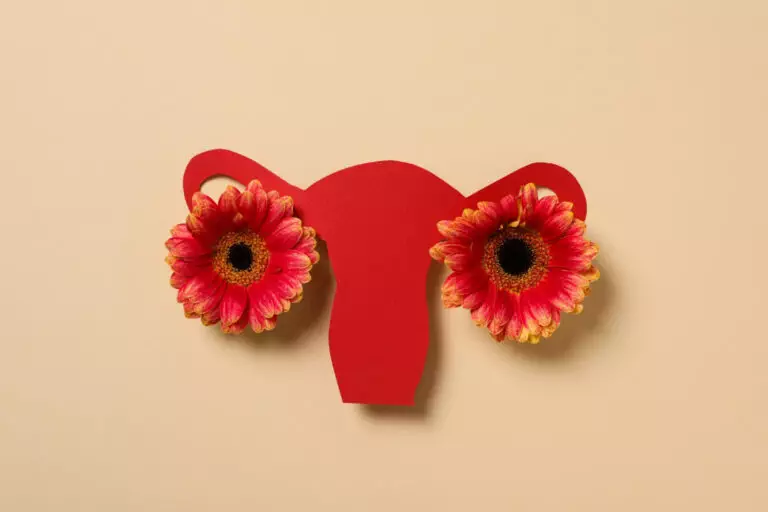Menopause is a universal and natural process which marks the end of our fertile years. It is not an illness, but instead is a word used to define the very last period a woman will have. In most developed countries, the average age that this happens is 51 years. But not everyone will go through menopause at this time in life, and not all forms of menopause will be experienced in the same way.
About 1 in 100 women will experience POI – premature ovarian insufficiency, when the ovaries stop working under the age of 40. About 1 in 10 of us will have our last period under the age of 45 – known as early menopause. And still more women will experience the symptoms of menopause as a result of chemical or surgical treatments for conditions like cancer and endometriosis.
There is no way to truly predict what someone’s menopause experience may be like. However, there are certain features to each of the types of menopause that mark them out as different, and it is really important that women are aware of the issues that may be more of a challenge for them if they go through a menopause that happens at an earlier life stage, or is induced artificially.
Premature Ovarian Insufficiency
Women with POI go through menopause under the age of 40. It might be significantly earlier than this, and the process of POI is often as a result of autoimmune conditions (where the body’s immune systems turns on itself), or due to treatment with drugs like chemotherapy which affect the ovaries, or genetic problems that means there is a problem with the ovaries from the start.
POI needs to be considered very differently to normal menopause – there are a lot of additional risks and considerations for women in this situation that need to be properly understood. Being oestrogen deficient from an early age can result in greater problems with bones and blood vessels in the longer term, increasing your risk of diabetes, heart disease and osteoporosis. For this reason, we recommend the replacement of oestrogen (and possibly progesterone and testosterone) until at least the age of natural menopause.
Fertility and sexuality can also be a major issue. Women with POI wishing to have, or complete their family will need referral to a fertility clinic for assistance. About 10% of women with POI will have further ovulation at some point and will go on to conceive naturally. This is why for those women who do NOT wish to have further children, we need to give forms of oral contraceptive rather than HRT in order to protect against this.
Sexuality issues can be down to the psychological challenge of becoming menopausal at a young age, or the impacts of infertility. There can also be physical challenges as these younger women will spend longer without the protection that oestrogen affords to their erectile tissues (the clitoris) and blood supply to/health of the vulva and vagina. It is really important to consider if women need topical oestrogen creams and lubricants too, and to properly discuss how POI can impact arousal and climax.
Surgical Menopause
Surgical menopause happens when both of the ovaries are removed. This can happen to younger women who have been experiencing gynaecological problems or PMDD. If the menopause occurs under the age of 45, we would want to replace the naturally occurring sex hormones to at least the natural age of menopause (51).
Damage can be done to the surrounding blood supply and nerves in the pelvis during gynaecological surgery, even by the most careful surgeon. This, coupled with the loss of a major source of testosterone (the ovaries) means that women who have undergone surgical hysterectomy can be at a greater risk of sexual issues. The evidence on this subject is a little unclear, however – bearing in mind that for many women, the hysterectomy will have occurred to treat major gynaecological or other impacts of natural cycling, many researchers have shown hysterectomy actually improves sexual satisfaction scores. It is important to ensure that these women are aware they may need testosterone and topical oestrogen creams to ensure ongoing healthy sexuality. We sometimes also use off-licence drugs similar to Viagra when climax has been negatively impacted by hysterectomy, with some individual successes.
Some women only have the womb removed, and the ovaries are left in place. This provides ongoing sex hormones for some time, though usually these women enter menopause a little earlier than women who haven’t been through surgery. Again, we just need to be mindful of the potential for post-surgery impacts on sexuality. It won’t be an issue for every woman, but it is useful for us to ask and to support women in this part of their lives.
Chemical Menopause
Menopause can be induced “temporarily” using hormone blockers – usually as part of treatment for other gynaecological issues like endometriosis or PMDD. These drugs block the release of chemicals from the brain that tell the ovaries to prepare an egg for release. We also commonly use these drugs in women undergoing treatment for breast cancer if the cancer was hormone receptor positive.
Women with endometriosis or PMDD, under the age of natural menopause, are often offered add-back low dose HRT to help protect their bones and blood vessels whilst they are on this treatment. Women who are on treatment like this for breast cancer will not have this option, and we will need to support them with menopause symptoms with non-hormonal approaches.
The hormone blocking drugs are – in theory – reversible. However, if you were already perimenopausal it is possible that your periods might not return.
Early Menopause
Early menopause is very similar to “normal” menopause, with the caveat that the longer women are oestrogen-deprived, the more this affects the risk they have of future health issues. In the case of breat cancer, early menopause is acutally protective. However, in regard to heart, bone, brain health and diabetes, early menopause of all kinds increases your longer term risk of these issues. All these risk factors need to be weighed up when deciding to treat with HRT, and for the majority of women, the decision to start HRT will be the one with the most protective factors.
Conclusion
Whatever type of menopause you have, there is no predictable way of knowing how it might affect you. Whilst some types of menopause carry increased risks of sexual impacts, or longer term health impact on bone, brain and heart health, it is still very important to make sure you are evaluated as an individual and that any treatment approach takes into account your personal experience, wishes, and risk/benefit balance. Here at Spiced Pear Health, we aim to offer all the women we see this personalised approach, and to keep reviewing how this is working for you and how your experience may have changed over time. In this way, we can be proactive about your health and give you the greatest chance of thriving in the future.






